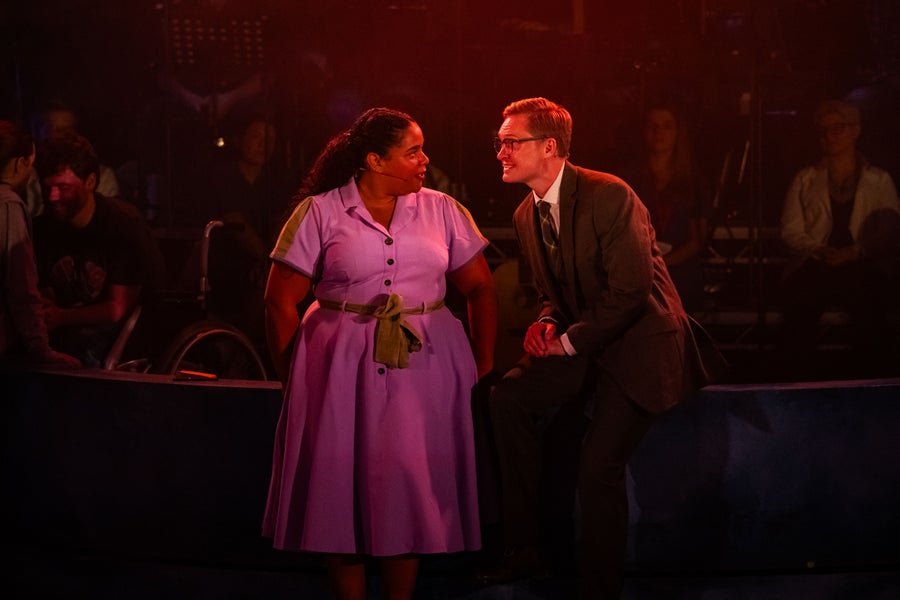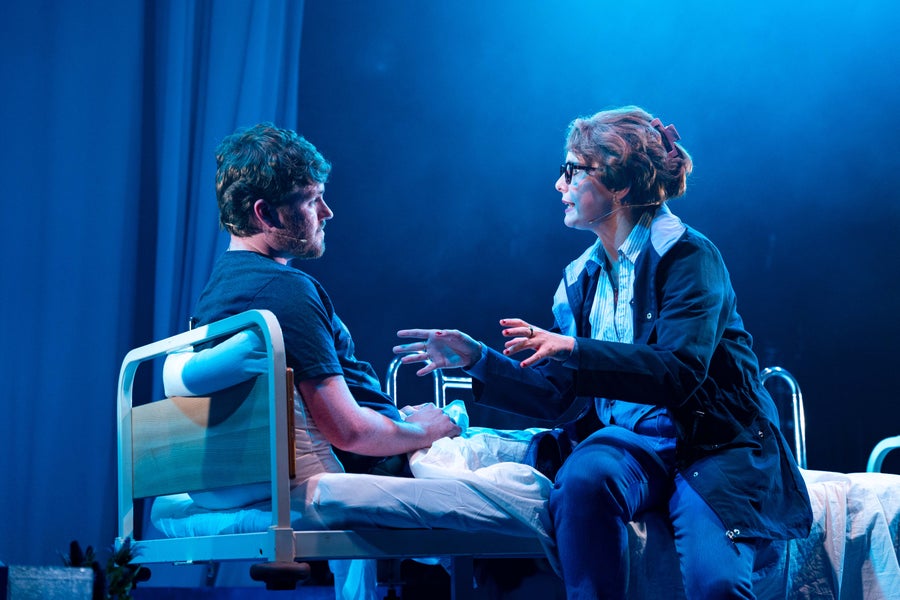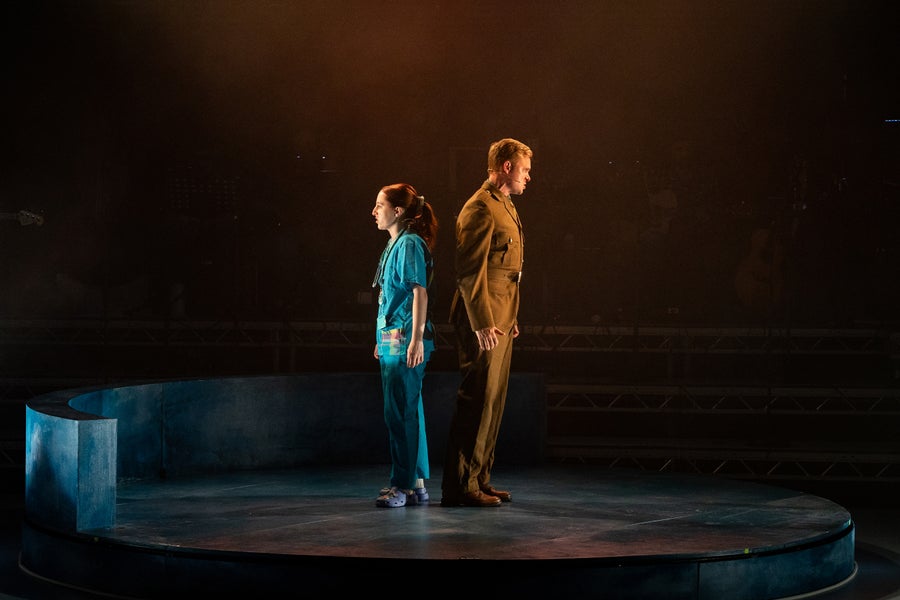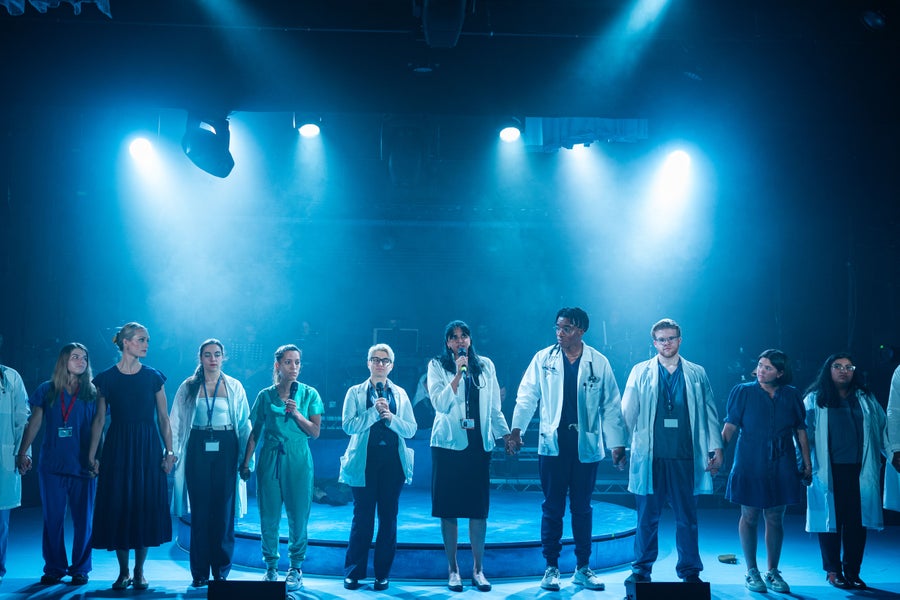Penicillin Musical Plays at U.N. Meeting on Antibiotic Resistance

In May cell biologist and physician Robert Farese received an unusual e-mail. “Have you ever dreamed of singing on stage in an Off-Broadway show?” it asked. And would Farese like to audition for a musical about penicillin?
“I thought, ‘Excuse me, what?’” says Farese, who works at the Memorial Sloan Kettering Cancer Center in New York City. His confusion was understandable. Antibiotics aren’t exactly a common or obvious subject for a musical. Where’s the drama in a medication?
But the story of penicillin—and the many antibiotics and other antimicrobial drugs discovered since—is actually about as classically dramatic as it gets. A keen-eyed doctor makes an accidental, miraculous discovery that revolutionizes the world, saving an unthinkable number of lives and ushering in a new era of medicine. Yet this new, glorious status quo can only last if we remain careful with what we’ve been given. And we have not been careful.
On supporting science journalism
If you’re enjoying this article, consider supporting our award-winning journalism by subscribing. By purchasing a subscription you are helping to ensure the future of impactful stories about the discoveries and ideas shaping our world today.
The musical Lifeline, which is just finishing a one-month stint at the Pershing Square Signature Center in New York City, weaves together the stories of microbiologist Alexander Fleming, who discovered the first antibiotic, and present-day doctors grappling with the drugs’ increasing failure. Farese was one of the dozens of rotating chorus members that backed a cast of actors from the U.K. On September 26 a song from the play was performed at the United Nations General Assembly’s day-long High-Level Meeting on Antimicrobial Resistance (AMR), which approved a worldwide plan of action for tackling the crisis.

In the musical, microbiologist Alexander Fleming is portrayed singing with his wife, Greek physician Amalia Fleming.

The character Aaron has been hospitalized with a resistant infection.
Mae Archacki/Ursa Creatives
The medications that doctors use to treat bacterial, fungal and other microbial infections are becoming less and less effective around the world as microbes evolve to survive exposure to the drugs. In 2021 antibiotic-resistant bacterial infections killed 1.14 million people and played a role in the deaths of an estimated 3.57 million others. The best estimates, released just this month, show that 39 million people will die of such infections between 2025 and 2050.
Today’s dire situation is the result of the overuse or improper use of these microbe-killing compounds in both medicine and in agriculture. As Lifeline dramatizes, Fleming saw this coming as far back as 1945, the year he shared a Nobel Prize for the discovery. “The greatest possibility of evil … is the use of too-small doses, so that, instead of clearing up the infection, the microbes are educated to resist penicillin,” he said in an interview with the New York Times that year. “I hope this evil can be averted.”
In 2016 Meghan Perry, an infectious diseases clinician at the University of Edinburgh, had an idea: to teach kids about antibiotic resistance with a musical. So she suggested it to composer and theater company co-founder Robin Hiley, the spouse of one of her colleagues.
“I was initially perhaps a bit skeptical about this being a good topic for a musical,” Hiley says. “But she was persistent, as clinician scientists are.” The earliest iteration of the musical was a children’s play called The Mould That Changed the World, with students playing singing and dancing bacteria and telling the story of Fleming’s discovery of penicillin.
Over time, Hiley, the show’s composer and lyricist, found himself drawn to Fleming’s life story. The Scottish physician treated soldiers during World War I, when the frontline treatment for infected wounds were harsh antiseptics that often did more harm than good. His discovery of bacteria-killing compounds later turned the once-shy scientist into an international celebrity.
The next version of the musical was a Fleming biopic for adults, which sold out runs at the Edinburgh Fringe Festival in 2018, Hiley says. A longer version of it went on tour to Washington, D.C., and Atlanta in 2022, supported in part by the nonprofit CDC Foundation.
But The Mould That Changed the World was still a story about the past. “Although it’s nice to tell Fleming’s story, his story ends in the 1950s. And [antimicrobial resistance] is really a contemporary story,” Hiley says. “So we decided to be brave and pull the whole thing apart and create this modern narrative.”

Fleming sings a duet with the character Jess, a present-day doctor.

The Lifeline chorus of real-life scientists and health care professionals.
Mae Archacki/Ursa Creatives
Lifeline’s present-day narrative follows a fictionalized group of friends whose lives are upended by an antibiotic-resistant infection. The story is intertwined with Fleming’s, which unfolds backward in time, starting with the golden age of antibiotics and ending in the dark days of WWI, leaving the audience with a stark impression of what we take for granted—and what we have to lose.
Throughout the two acts, the chorus of scientists and health care professionals deliver accounts of real-life cases of antibiotic-resistant infections. “We went out through all these networks and collected hundreds of people’s stories [about how] AMR has touched them,” Hiley says. Some of these tales end in recovery; some end in tragedy.
“For me, performing and telling those stories did not feel like acting,” says Michelle Chang, an infectious disease physician based in New York City and a member of the chorus. “It really just felt like I was sort of talking about my work, just on a different stage and to different people.”
Part of Chang’s work involves consulting with doctors to ensure they are prescribing the right antibiotics as part of her hospital’s antimicrobial stewardship program. Many of these programs have sprung up around the country in just the past 10 years. In 2014 only 41 percent of hospitals had comprehensive stewardship programs. By 2022, that number had shot up to 97 percent. These stewardship teams gather data on which resistant microbes are circulating in a hospital system and consult with doctors to help them treat specific patients while preventing the spread of resistance.
Still, this problem of growing resistance doesn’t have a simple solution. It’s a global crisis and one that most severely affects the communities with the fewest resources. Currently Pakistan is in the midst of an extremely drug-resistant typhoid outbreak. The outbreak is mostly linked to a lack of access to clean water and is primarily infecting children.
In writing the musical, “we were keen not to be saying, ‘This is what you must do,’” Hiley says. “That’s not necessarily up to us as the artists.”
Lifeline performers closed out the U.N. General Assembly’s meeting on AMR. They performed a Scottish-folk-music-inspired number that highlighted the urgent need for governments to make specific commitments to fight antimicrobial resistance. The gathering was one of three “High-Level” meetings at the 79th General Assembly this week; the other two tackled rising sea levels and nuclear disarmament.
Despite the musical’s dire message, it ends on a hopeful note. The chorus breaks the fourth wall, and its members introduces themselves to the audience and describe their work contributing to the crisis’s solution.
Initially, “I didn’t realize how impactful we are to the show,” says Farese, who studies lipid digestion in cells, which can be important for understanding how pathogens replicate. “Suddenly it goes from theater to reality. A lot of these people are really literally on the front lines of this stuff. I think that’s very powerful. I teared up the first time I saw it.”





